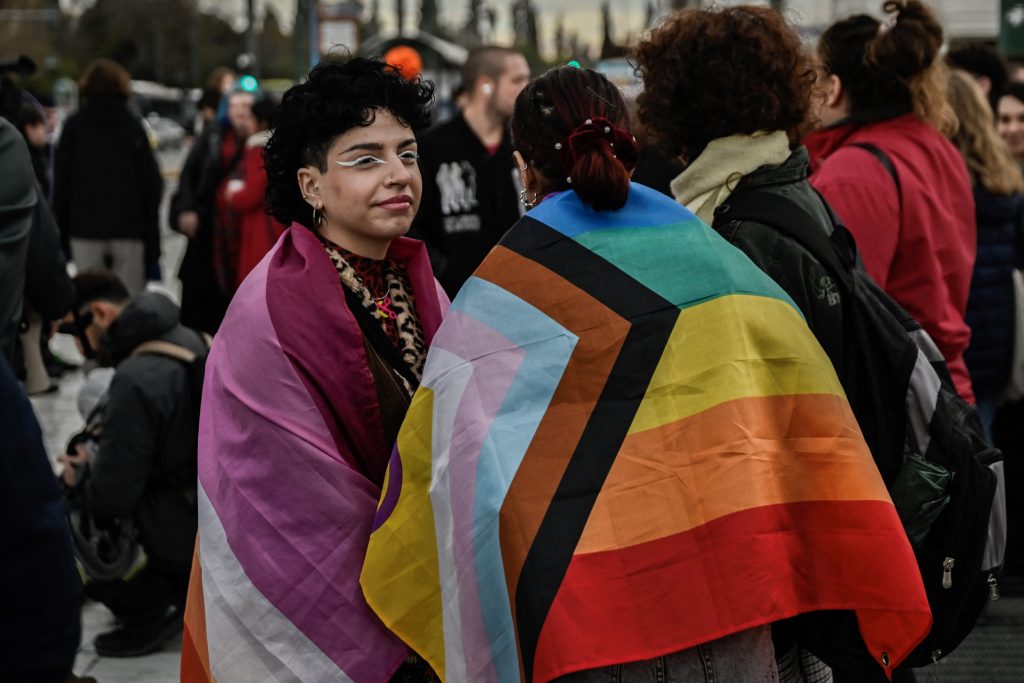
Becoming parents is an uphill battle for same-sex couples, with less than one country in five allowing them to adopt and many restricting their use of IVF and surrogates.
After Greece’s parliament adopted a bill legalising same-sex marriage and adoption, AFP looks at the state of rights around the world:
– Easier said than done –
In just 37 countries, or less than a fifth of the United Nation’s 193 member states, same-sex couples are allowed to adopt, according to the International Lesbian, Gay, Bisexual, Trans and Intersex Association.
Located mainly in Europe, North and Latin America, they are largely the same countries that have allowed same-sex marriages or civil partnerships.
The Netherlands led the way in 2001 allowing same-sex couples to adopt children. Since then 24 countries in Europe, nine in the Americas, plus South Africa, Israel, Australia and New Zealand have followed suit.
In December 2023 Thai lawmakers gave initial approval to legalising same-sex unions, as well as conferring adoption rights. Taiwan has also given rights.
– IVF and surrogacy –
But with relatively few children available for adoption in these countries, many same-sex couples try to have children themselves.
For men the answer is often to use the sperm of one in the couple and a surrogate mother, while lesbian couples often use donor sperm to fertilise the egg of one of the mothers.
In both cases the second partner then has to adopt the child as he or she is not the biological parent and is therefore in legal limbo.
Most countries allowing same-sex marriage also permit lesbian couples to use fertility treatment to start a family.
Many gay men pin their hopes on having a baby through surrogacy.
But many European countries ban surrogacy and the practice will not be allowed under Greece’s new law.
Only a handful of nations explicitly extend the right to surrogacy to gay couples, including South Africa, Israel and Cuba.
lc-jmy/eab/jph/tw
© Agence France-Presse





